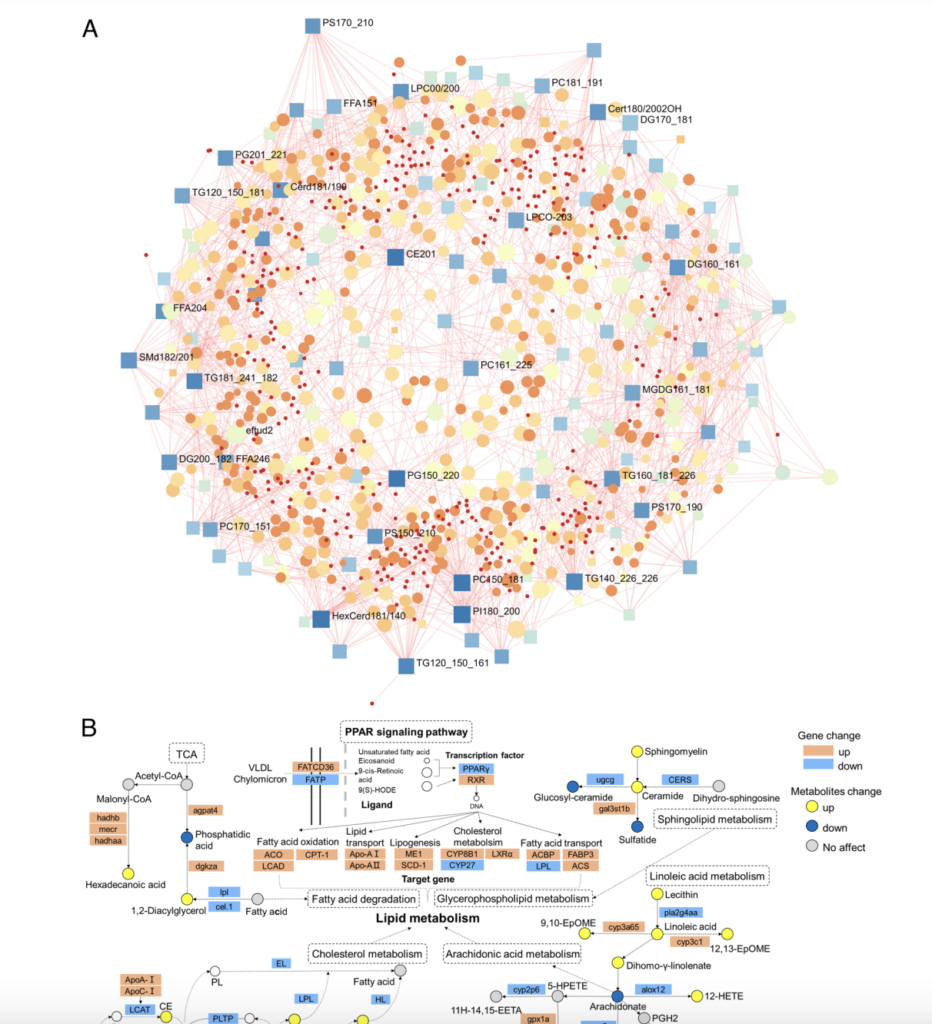I’m interested in how food can be used to optimize mental health and have focused with our clinical group on how we can integrate nutrition and nutrition plans into the treatment of mental health disorders. There’s a new piece of science that is very striking and leads to some direct ideas about things you can do in your everyday life to decrease your risk of anxiety and depression. Let’s just cut to the chase. It’s cutting out french fries. Now, that’s a painful thing to say. I really like french fries, and I like potatoes in general, but there’s some new data that was just published on April 24 that highlights both the epidemiological risk of eating fried foods as well as the underlying mechanisms by which fried foods disturb our mental health.
Let’s get into the study. The first part of the study, the researchers looked at the UK Biobank dataset. This is a very large dataset of over 140,000 individuals, many of whom completed dietary questionnaires. They looked at individuals who ate the most fried food, which was more than one serving of fried food a day, and found that there was a 12% risk increase of anxiety and a 7% increased risk of depression. The researchers wonder, how does that happen? How is it that fried foods can disturb our mental health? This is where the paper gets really complex, but also very interesting. Using an animal model of zebra fish, which are fish that like to travel in packs, they found that acrylamide, which is one of the, the nasty byproducts of the frying process, causes all kinds of genetic expression changes in the brain of the zebra fish.
Now first, what is acrylamide? Acrylamide is a molecule that’s created by the mallard reaction. This is when we combine a reducing sugar like glucose or fructose with an amino acid under the condition of high heat, essentially frying. As you heat foods up hot, you’re moving this reaction along and creating this toxic byproduct acrylamide. You find a lot of acrylamide in fried foods, particularly french fries. That’s the major source of acrylamide in most human diets. It’s also a component of a Western diet. As you’ve seen in these videos and as we’ve talked about in many of the research studies in nutritional psychiatry, a western dietary pattern is correlated with poor mental health outcomes, increased risk of depression, anxiety, ADHD and dementia and fried foods is a major component of a western dietary pattern. Acrylamide is responsible for a lot of that.
So how does this happen? Well, the researchers note several mechanisms by which acrylamide disrupts our mental health by disturbing brain metabolism. It’s really fascinating to think that a french fry at the end of your fork can travel all the way into your brain, at least the acrylamide can and disrupt gene regulation. That’s exactly what these researchers have found. Papers like this are really exciting because they combine an epidemiological dataset, which shows us correlations, but doesn’t really tell us exactly how things happen, with an animal model that helps us appreciate what the mechanisms at play are that cause this increased risk of depression and anxiety. It turns out that acrylamide does really horrible things for our brain. For example, the blood-brain barrier is a special layer of cells that protect our brain. However, the cells are held together a protein that makes what are called tight junctions. It turns out that acrylamide decreases the expression of tight junctions and so what happens is that your brain gets a little leaky. This barrier is more permeable, meaning that our brain isn’t able to really protect itself as well. That’s one of the ways that acrylamide and fried foods can disturb brain metabolism.

Another mechanism that the researchers noted was that acrylamide from fried foods also can disturb the lipid metabolism of our brain. The brain is filled with fat. Your brain is about 60% fat and the brain has a lot of polyunsaturated fatty acids. Now, these are amazing fats like the omega-3 fats that get a lot of attention when it comes to brain health. They’re very long. They have about 22 to 24 carbons, and they have a lot of what are called double bonds. So they’re storing a lot of energy. The problem is when we oxidize these fats called lipid peroxidation and that happens much more when acrylamide is present. Essentially, we’re affecting the brain by increasing inflammation, by decreasing the protection of the blood-brain barrier.
They had a really interesting aspect of this paper using an animal model of zebra fish. Now you might wonder what does zebra fish have to do with acrylamide and french fries? Well, zebra fish like to travel in groups, they are social fish, and when they encounter something new they tend to want to pack together. If you look at the diagram here behind me, this is a unique environment that the researchers created for the zebra fish. They have a side of the tank where there’s nothing new and then another side of the tank where there’s what’s called a novel feature. Generally, if you look at the control group, zebra fish cluster together. When they see something novel, they kind of dive down group together and hide behind it. You can see that in the control group. That’s a heat map of the zebra fish’s movements in this tank.
Then look what happens when the zebra fish get treated with acrylamide at increasing doses, and it’s very easy to see in this diagram. They behave really differently. First of all, they are not as cohesive, as a group as much, and secondly, they’re not as exploratory. None of them really check out the novel feature. They’re not acting like zebra fish usually act. The researchers correlate this animal model to some of what we see in anxiety and depression that people are more isolated, less social, less exploratory when you’re struggling with these mental health conditions. It’s a nice illustration of how these researchers have taken an epidemiological finding, that western dietary patterns and increased consumption of fried foods are correlated with an increased risk of depression and anxiety and explored in a detailed way how genetic expression and protein expression is affected by acrylamide.
Now you may be wondering, does this mean you can never eat fried foods again? Well, we’ve got an easy solution for you and it’s how I consume most of my potatoes these days, which is oven roasting your potatoes in olive oil. When you oven roast foods, you decrease the acrylamide content by about 90%. So you can still enjoy that delicious crispy potato taste, but without all of those toxins that disrupt your blood-brain barrier, cause more neuroinflammation and increase your risk of mental health disorders like depression and anxiety.
Another thing to note is that fried foods often are fried in soybean oil and this is one of the major sources of omega six fats in humans these days. If you look at our soybean oil consumption, it’s gone up about a thousand fold since 1900. Humans have never eaten a lot of soybean oil, but now it’s the major oil that’s used in fried foods and also a frequent component of ultra processed foods.
This paper helps us think about some specific foods that we can cut out of our diet or shift away from that over time can have an impact on our mental health. I’m sorry to let you know about the toxins in your french fries, but I hope you hear the hopeful recommendation that by making a simple switch and soaking your potatoes in a little bit of olive oil, maybe put a little rosemary in there, slide them in the oven, can drastically reduce your consumption of acrylamide and decrease your risk of anxiety and depression over time.



